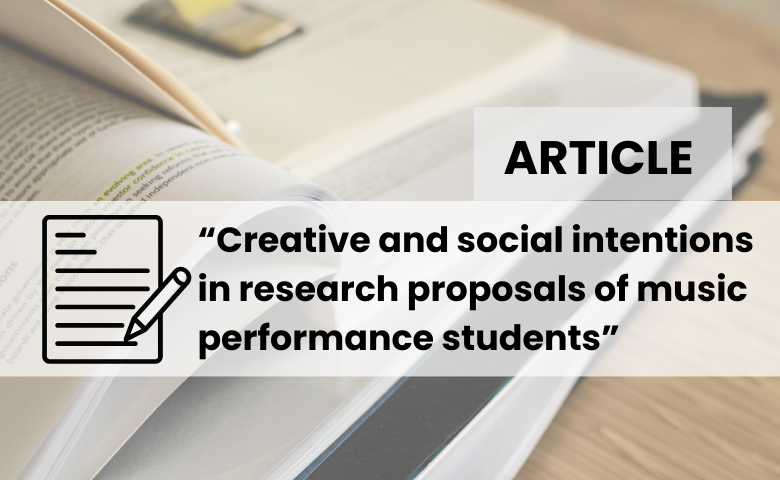Transformations in global culture and changing priorities in education policy have led to several waves of curriculum reforms in higher music education in recent decades. There have been attempts to integrate elements of research, entrepreneurship and student-centred learning into curricular frameworks that traditionally focused on achieving artistic excellence through master-apprentice learning models. Recently, the emphasis on curriculum design seems to be shifting towards the potential role of performing musicians as creative and engaged ‘makers in society’.
In this essay, Paul Craenen places recent attempts in higher music education to support a more creative and socially engaged profile of the performing musician within broader trends in cultural and educational discourse, and makes a comparison with developments in artistic research and music performance studies. Based on an analysis of creative and social intentions in research proposals of 291 music performance students at the Royal Conservatoire in The Hague, he explores whether and how the proposed concept of the music performer as ‘maker in society’ resonates with the upcoming generation of classically trained musicians, and discuss what can be learned from this for the role of artistic research in curriculum innovation.






